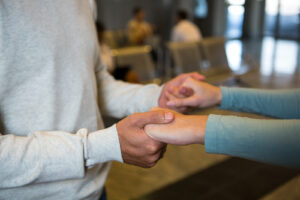Ever feel this way? I certainly do. And sometimes, typically unspoken, I add an ‘I don’t care’. Problem is … most of the time, I really do care! The reason for the unspoken is that this is said in frustration and is not something I really think, believe, or want. Emotion is dictating at this moment but I don’t really want it to have a voice or action. How do you handle your ‘I don’t know’ and equally important, how do you stop your emotions from dictating what you do and say… next?
For me, ‘I don’t know’ is related to the current reality that I really do need to know. Often immediately. The other times can be equally frustrating but their ‘voice’ isn’t as loud or dictating in my head. ‘Know’ means I have a context, an understanding of what is happening and an indication how this affects me and what I need to do (even when the ‘do’ is nothing). I don’t mind having to change which is why I need a basis from which to change – not knowing gives me no basis.
How does one ‘act’ if there is no knowledge? Isn’t our level of confidence in what we say and do based in what we know? I suspect that this reality is why I believe we are always in a state of becoming because we never reach that utopian plateau of knowing it all. (And do deliver me from those who do believe they do.) Knowing it all places a cement around the object. However, we can learn and continue to grow in what we know. Growth in depth and height and width and length gives us a greater understanding and appreciation.
Scripture speaks to this point as well.
“My people are destroyed for lack of knowledge, because you have
rejected knowledge, I reject you from being a priest to me.” (Hosea 4:6)
The choice of rejecting knowledge was made by the people… not by God. He had to reject their priesthood because they were rejecting His teaching. What a terrible place to be. Remember that it was their choice – they did know. And yes, I’m talking about not knowing problems. Sometimes we really do know but don’t want to know. In our lack of knowing, though, we can always take those actions to seek to know, to understand. We can go to the source or the expert to get their understanding, their advice. But it is we who have to do the doing. Remember too – you are always responsible for what you know. When you learn, you have to apply. You have no excuse.
Bottom line. There really is no excuse for our ‘I don’t know’ – we can always begin the learning process to know.





